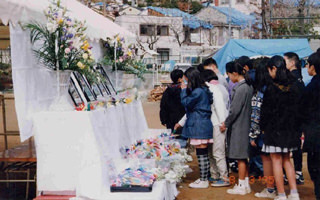
Mental Health and Psychosocial Support
for Health EDRM
Recent mental health & psychosocial support projects
Long-term Psychosocial Impact of Natural Disasters on Survivors in Japan

Implementations
Implementing partners
National Center for Neurology and Psychiatry (NCNP)
Location of research
Total budget
Background
Over the past few decades, the frequency and severity of natural disasters have increased. Growing population, unplanned urbanization, ageing and related demographic trends have contributed to this change. The 3rd UN World Conference for Disaster Risk Reduction, Sendai Framework for Disaster Risk Reduction 2015-2025 (SFDRR), highlights the fundamental role of health in disaster risk management (DRM) and emphasizes the need for scientific evidence in this area. In practice, the majority of attention to DRM has focused on preparedness and response. However, the long-term psychosocial impact and needs of survivors during the recovery phase have not been well documented nor have there been many studies about possible interventions.
In cooperation with NCNP Japan (the institute leading this research), Hyogo Institute for Traumatic Stress and the WHO Kobe Centre Working Group for this project (including 21 Japanese experts) will conduct a comprehensive review of DRM in Japan with a focus on psychosocial interventions.
- Develop a review paper on policy and social innovations for disaster mental health in Japan based on gaps and needs for important natural disasters.
- Convene an expert consultation meeting to identify fundamental gaps in knowledge and required actions for better long-term mental health management for disaster survivors.
- Conduct a systematic literature review to understand global research gaps.
- Conduct a nationwide comprehensive survey of researchers, local/national government officers and NGO and community workers to complement and strengthen the key findings of the expert consultation.
- Integrate the results of the survey into the results of the consultation meeting and literature review to develop evidence-based policy suggestions
Goals
The project will
- Identify fundamental gaps in knowledge and required actions in long-term psychosocial management for disaster survivors.
- Contribute to evidence-based policy options for better long-term psychosocial management after disasters.
- Provide scientific evidence for health emergency and disaster risk management by sharing lessons and evidence from Japan.
